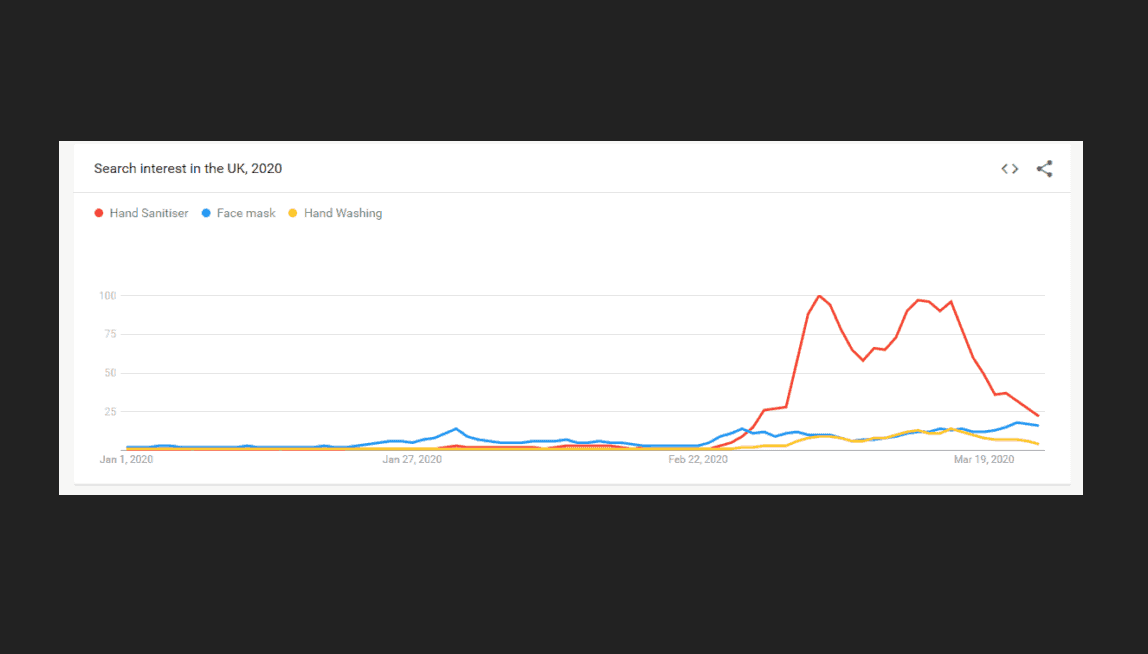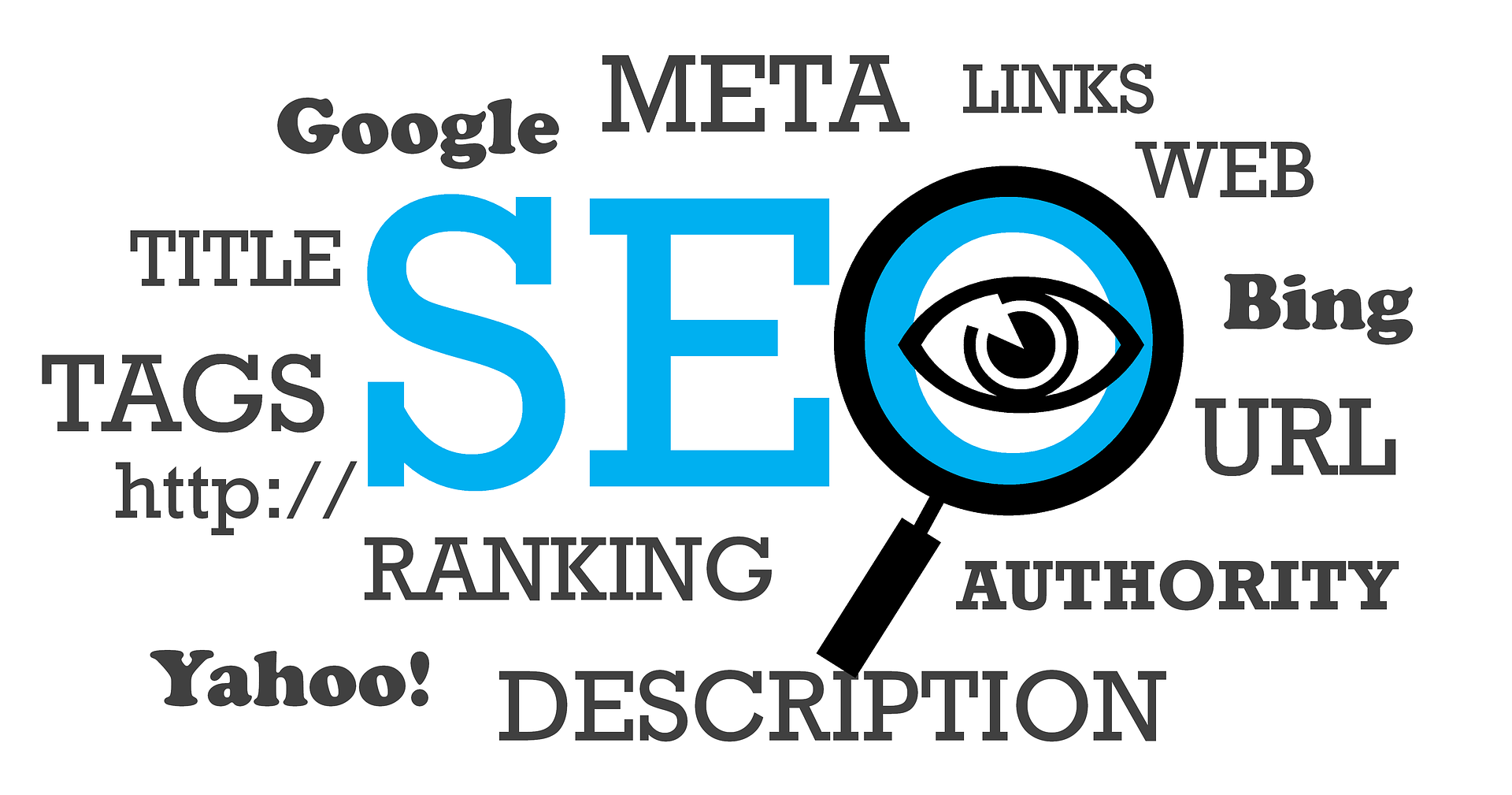With the UK on lockdown, many businesses are having to adapt to a new, unprecedented coronavirus (COVID-19) landscape.
While the severity of the coronavirus pandemic has had a huge toll on our healthcare system and the lives of the public, there is also a huge impact on businesses and marketing activity. Many high street stores, restaurants and other businesses have shifted their focus online during this lockdown to ensure survival and deliver products or services to customers. Ecommerce retailers have reacted quickly to adapt to an online-only shopping experience. TV ad spend is down – for instance, ITV saw a 10% decrease in revenue.
For many businesses, digital marketing has become more critical than ever to engage customers online and ensure business continues.
With many more people working from home, and more people simply staying at home due to the lockdown or self-isolation periods, businesses are having to adapt to an even more online-centric time. Of course, this impacts some industries much more drastically than others – but digital marketing has a pivotal role to play for business.
In the graph below, you can see the negative impact on retail in Europe.

Similarly, the forecast for the future is largely negative, as one would expect.

As for the behaviour of the public, this has changed dramatically. Below you can see how social activity has changed, and thus how it impacts business.

The same goes for shopping behaviour. COVID-19 has made a huge difference to how we shop, where we shop, and what we buy.

So what does that mean when it comes to marketing? How are businesses reacting? More product and service launches are delayed, but marketing continues.
But does that mean every business affected by this crisis should simply halt all marketing activity? Should digital marketing take a backseat while the pandemic puts a pause on regular life? There are circumstances where the answer is yes, but there are many businesses that will benefit from assessing current digital marketing strategies, creating new reactionary campaigns, or planning for the future.
As this is a global pandemic, you may want to address specific areas of your digital marketing activity, or take a broader look at your overall marketing. Below we have run through some of the aspects of digital marketing you may need to reconsider, and channels you may wish to swing your attention to.
Google Analytics
As staff are working remotely, they are likely all over your business website. That means your Google Analytics data might be a bit off.
Unless they are connecting via a VPN you have whitelisted, you may have your own staff as part of your website visitors. This is worth considering when monitoring your traffic and analytics reports.
Paid search
Overall, search demand is down. Unless you are selling goods which are currently deemed essential, then it’s probably wise to reduce your spend. If what you offer isn’t a priority right now for your audience, then this could damage the return on your ad spend.
But should you be halting your ads altogether?
Because businesses are reducing ad spends, and thus making few bids due to cut budgets, this means bids in many industries are lower than normal. So if you think there is an opportunity for your business here, it’s worth keeping your ads running to make the most of paying less for clicks.
Paid social ads
There is an expected rise in digital ad spend as consumers spend more time online, adjusting to the current scenario.
With less commuting and traveling, there is more opportunity to advertise to people browsing social media in their downtime. They have more time to pay attention to ads that they otherwise may not.
Social media
Overall, social media usage is up as everyone has plenty of free time.
In addition, people working from home now have access to their phones all day long, as opposed to when they are in a more restrictive office environment. People will also be browsing social media to stay up to date on the crisis, checking for news articles and otherwise.
More people on their phones mean more people spending time on social media – whether this is on their PC or mobile devices.
Sharing content which entertains or keeps people busy would be beneficial in this period. Also content that is positive or optimistic will be well received – nobody needs more doom and gloom. Posting the positive things your business is doing with the crisis in mind may get the attention it otherwise would not. This crisis impacts everyone.
SEO
As search-demand drops, so does the effect of SEO. However, now may be the perfect time to focus on your SEO.
SEO does not cost, it is simply a matter of spending time making the correct optimisations. And now many businesses have time to spare. Now is a great time for most to take a step back and re-assess the SEO strategy, and how it can be improved. This means once the pandemic has subdued, you will be in a better place than before.
Despite this overall trend, there are some terms that will be gaining in volume. The search behaviour of the public and businesses have dramatically changed in merely a matter of weeks – so it’s important to consider when, where and how you serve ads, and where you focus SEO efforts.

Essential items are much higher than normal. People that would normally be picking up these items on a weekly shop or at lunch when at the office will be ordering these in. During a lockdown, popping down to Tesco for ground coffee, toothpaste or perhaps a bottle of scotch isn’t exactly an “essential” requirement – but all of this can be ordered online and delivered quickly enough. Even if coffee is essential when working from home.

Demand for food and other grocery items you’d get at a supermarket is up online. This is largely due to the fact that fewer people will want to venture to the supermarket – along with those who are showing symptoms or at risk which will be self-isolating for several months.

In addition to this, the fact that restaurants are shut will mean more people are cooking at home and will require more supplies. More people are also at home at all hours, so where you’d normally pop out for lunch and only need to get ingredients for dinner, now people are having to stock up for everyone being at home for 3 meals a day, 7 days a week.

Social distancing and a lockdown also means certain products will be more popular than normal. Certain software or apps have seen a rise in demand – voice/video calling software has gained popularity for both business and pleasure.

Who will lose out? Hotels, attractions, restaurants, pubs, travel, events, and so on. Most things that involve leaving the house. But many businesses are turning to offer click and collect or free deliveries.
Local SEO
Now is a good time to address your local SEO.
Check your Google My Business listing to reflect your current business hours, or how to get in touch with you.
You may also be on platforms or directories that will need updating, such as Bing Places or Tripadvisor.
Google has made it easier for businesses during this time:
With so many disruptions to daily life, people are looking for more information about school or business closures. Based on data from governments and other authoritative sources, Google Search and Maps will now display if a place, like a school or local business, is temporarily closed. In the coming days, we’ll make it possible for businesses to easily mark themselves as “temporarily closed” using Google My Business. We’re also using our artificial intelligence (AI) technology Duplex where possible to contact businesses to confirm their updated business hours, so we can reflect them accurately when people are looking on Search and Maps.
https://blog.google/inside-google/company-announcements/covid-19-how-were-continuing-to-help
Google also had the following Google My Business-specific recommendations:
Change your opening hours
If your opening hours have changed, update the times when you’ll be open or closed. The hours will show when the customer visits your Business Profile, and they’ll know exactly when to visit. Learn how to change your hours.Manage your information
Explain whether your business operations are affected by COVID-19. You can share information about any extra precautions that your business is taking, such as moving to takeaway or delivery only. You can also share if you’re providing any extra services to the community, or whether you’re experiencing delays. Learn more about editing your business description.Create a post
Share more detailed and timely updates about what’s going on with your business through Posts. For example, add information about what products and services you have available, and link to other resources. You can continue to use Posts to directly communicate with your customers on a regular basis as your business changes. Learn how to create a post.Temporary closures
https://support.google.com/business/answer/9773423?hl=en-GB
At this time, Google relies on authoritative data sources, where available, to mark certain types of places as ‘Temporarily Closed’ on Google Search and Google Maps.
Content marketing
The same goes for content marketing. For many businesses, writing or creating content takes a backseat to the rest of the business.
But perhaps now is the time, when you or your colleagues have more time to spare. Maybe now is the time to write that content you’ve been putting off, or create those videos you intended to make months ago?
It’s also worth considering the type of content people need right now. Supportive content can be a big boost for your brand.
If relevant, topics involving staying healthy, active or otherwise optimistic in times of isolation are beneficial
Email marketing
Email doesn’t cost – and most people are working from home with access to emails all day, or in the office with less to do. This means there’s more email checking, and a bigger chance they may find your email worth reading – compared to when they are normally busy and inundated with other marketing messages.
However, with the current COVID-19 situation as it is, it’s important to remember you don’t want to sell based off the fear of the pandemic, or make some other form of promotion which would be in bad taste. Of course, many businesses are having sales and promotions to keep the lights on, but people want to be distracted from the pandemic – not reminded that you want their business based on the fact there is global hysteria.

It’s worth considering how your audience will have changed after the pandemic has died down.
Campaigns
If your business is heavily impacted by this pandemic, then it’s worthwhile considering how you can utilise these channels with a new digital marketing campaign to make the best of a bad situation.
You could think about marketing to existing customers if gaining new ones is less likely at this moment in time. Ensure you retain their business during and after the crisis. You could be thinking about implementing marketing automation in the downtime, keeping customers engaged, so that when everything is back to normal they are still in touch with your brand.
You can also develop content that helps your current customers. This could be written posts, videos, podcasts, or perhaps virtual online meetings or webinars where you discuss how they are handling the pandemic. This human touch goes down well in a time where nobody is allowed to socialise outside of their own home.
In terms of business, you may wish to spin up pages directly related to COVID-19. This may be how you are handling the situation, how your services have been impacted, or how you are willing to help customers. A set of FAQs would also be beneficial, as many customers will likely have questions how the current situation impacts them, so to avoid dealing with them one-by-one, they may find answers on the FAQs.
What’s next?
Consider what will happen after all this is over. People may not have jobs to return to. More people may continue to work from home. Will people have learned new working patterns, or living patterns? Will more in-person meetings go online as people have realised how it works, and as more businesses adopt video conferencing software?
Right now, business does take a backseat to the global COVID-19 pandemic. Staff health and customer safety is a top priority, with many businesses rightly choosing to put this ahead of everything else.But that doesn’t mean businesses simply stop operating. While it may be a slow period, it also offers an opportunity to reflect on your digital marketing and re-strategise in order to not only survive this down period, but also to come back stronger when things are back to normal.






